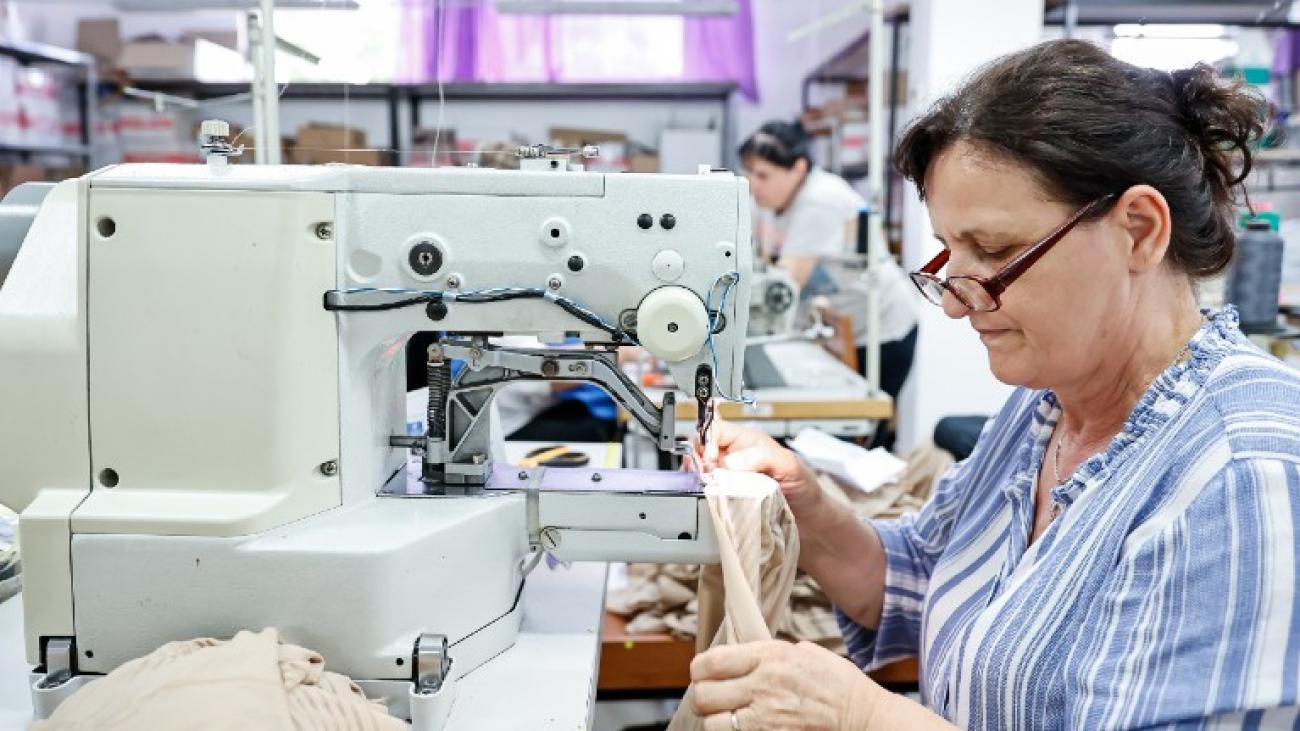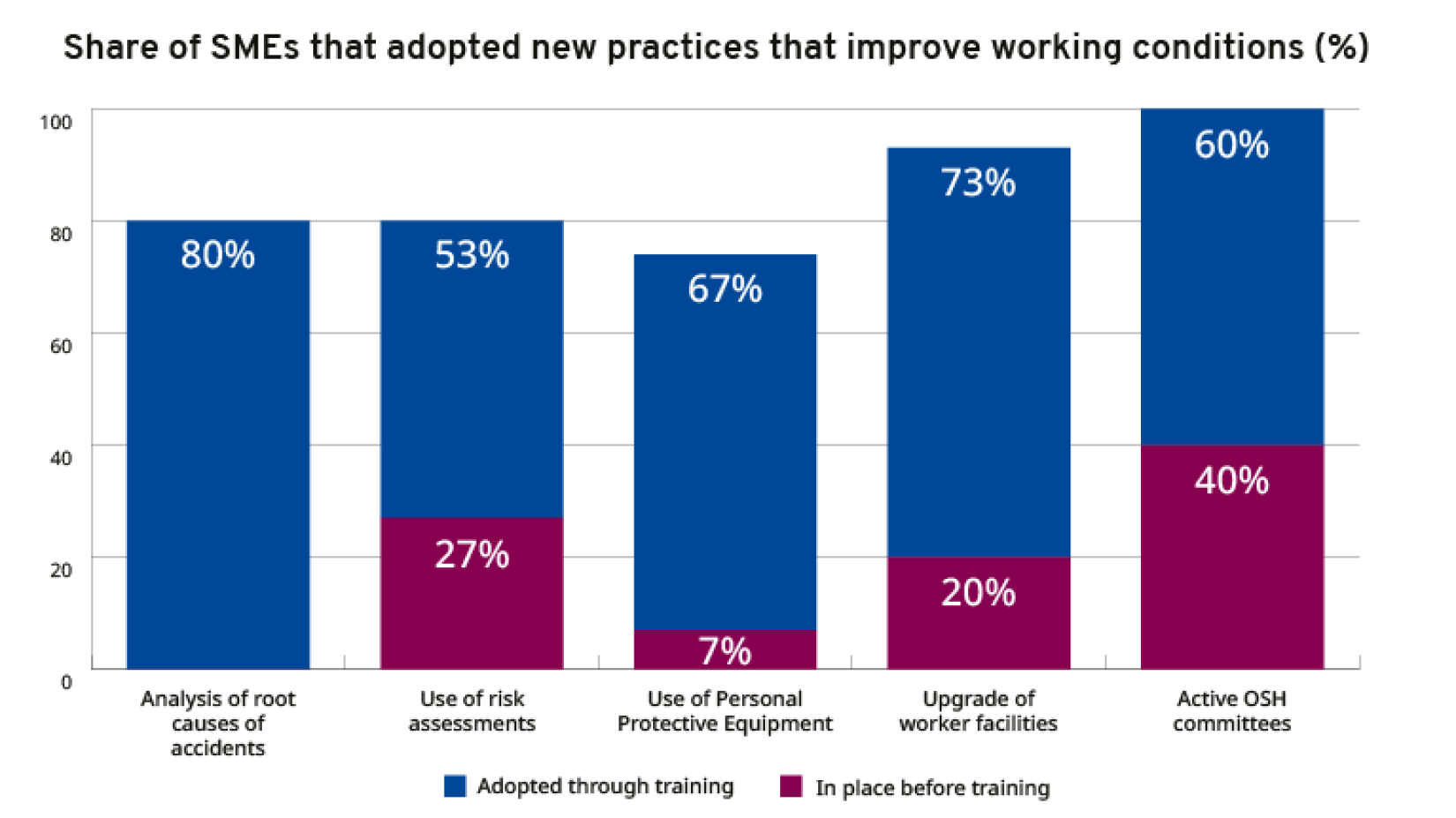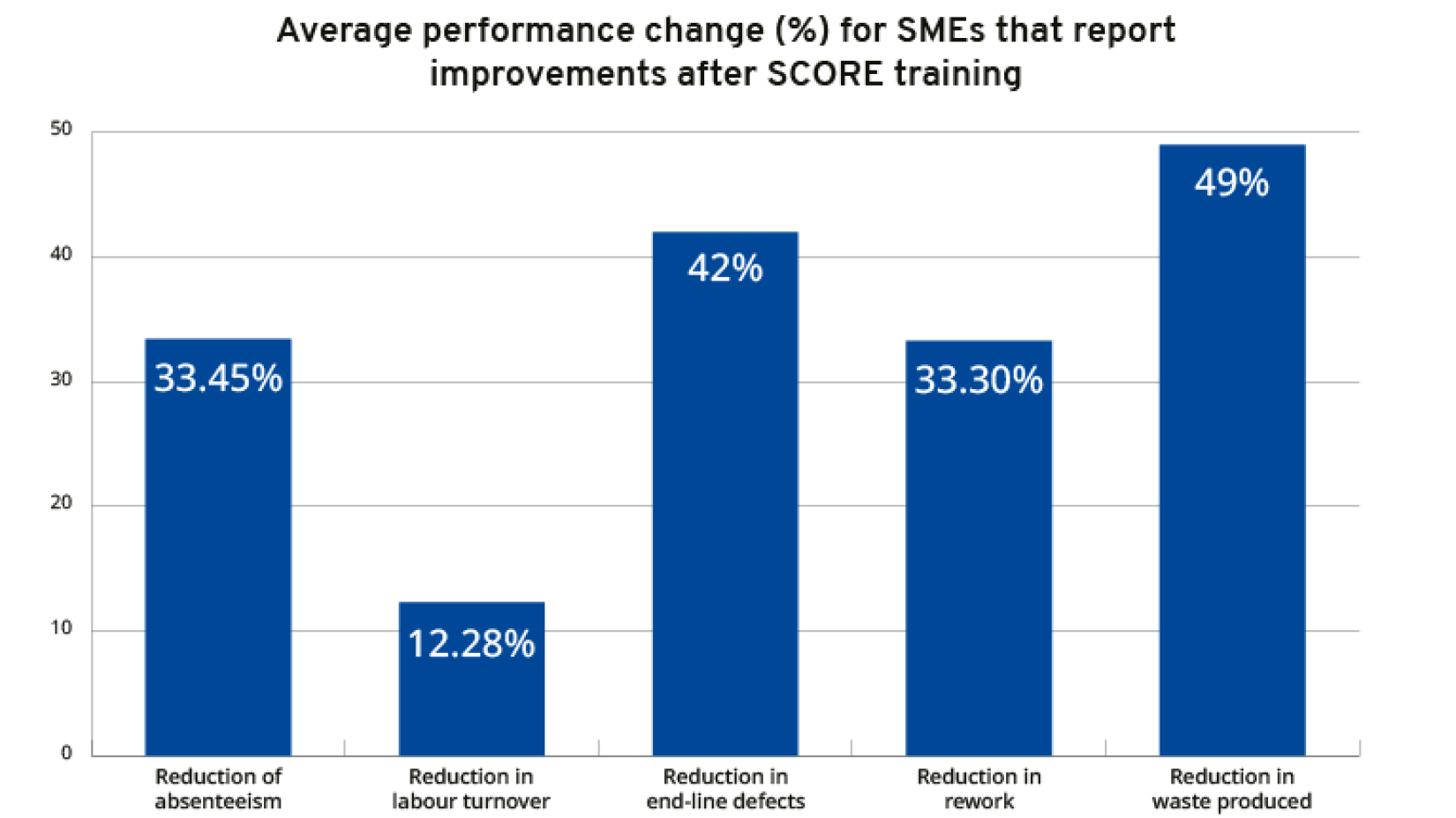Step by step: Albanian textile and footwear factories improve productivity and working conditions

Part of the Joint UN Albania Project: 'Business Partnerships and Solutions for SDGs'
After successfully establishing practices that led to safer and healthier working conditions for about 2,500 workers in fifteen different enterprises, the ILO is now aiming at achieving decent work and more sustainable production in Albanian SMEs.
In the framework of the United Nations Joint Project “Business Partnerships & Solutions for Sustainable Development Goals” funded by the Swedish Government, the ILO has been supporting textile and footwear enterprises in improving productivity and working conditions since 2022. The ILO assistance contributed to promoting decent work and gender equality and to achieving cleaner and more sustainable production patterns in companies, with a view to enabling Albanian SMEs to participate in global supply chains. Overall, the project aimed to help enterprises adopt production processes and practices to accelerate their contribution to the achievement of the Sustainable Development Goals (SDGs).
In the past 25 years, Albania’s dynamic private sector drove the transition that brought the country to middle-income status. Albania is a small open economy and relies on the production of goods and services that make extensive use of natural resources, especially water, and of semi-skilled labour. The country needs an engaged private sector that takes a long-term social responsibility approach to create productive employment, strengthen markets, and build a sustainable society. SDGs provide a a solid framework to rethink the present and future role of the private sector.
Albanian companies currently have low awareness of their impact on the environment and society at large. Making long-term choices towards increased economic, social and environmental sustainability can give them a strategic advantage in the future, especially at a time of rising energy prices and climate crisis, high inflation, shortages of raw materials and skilled workers, and of having to fulfil the EU integration requirements. Combined with reforms of business and trade regulation at the national level, for instance with regards to exports, recycling and traceability, sustainability can contribute to increasing the resilience of Albanian companies and support their sustainable growth over time.
The overall objective of the ILO project has been to raise awareness among private sector actors about the SDGs, how businesses benefit from them and can contribute to their implementation in Albania. In addition to offering a wealth of expertise and innovation, businesses can help mobilize much needed capital in support of the SDGs.
The project has been relying on the Swedish experience. Sweden has been at the frontline of efforts to link the SDGs with the work of the private sector and has established itself internationally as a model.
The ILO implemented the Sustaining Competitive and Responsible Enterprises (SCORE) Programme to help SMEs improve working conditions and processes in Albania, aligning with SDG Goals 5, 8, 9 and 12.
In the first phase of the project (January 2022 to December 2023), thirty-eight textile, clothing, leather and footwear (TCLF) companies established enterprise improvement teams, trained in SCORE Basics, consisting of advice in introducing or upgrading processes to improve the work flow, reducing energy consumption and materials waste, conducting systematic analyses of defect causes, expand the usage of Standard Operating Procedure (SOPs) as well as on the distribution of productivity gains to workers through better working conditions.
A total of fifteen enterprises (20 per cent of which owned by women), employing 2,498 workers, successfully implemented the SCORE Basics improvement action plans. Among the changes implemented, 60 per cent of the companies established or activated an Occupational safety and health committee, 53 per cent started analyzing work-related risks by using proper risk assessments and 80 per cent performed a root cause analysis of accidents (see figure 1). In addition, based on findings that a close relationship exists between workers’ satisfaction and productivity, three-quarters of enterprises invested in improving the workplace environment, compared to only 20 per cent before the training.

Another leap forward is the adoption of the “5S tool ”, a five-step process that can improve the overall functioning of a business. The tool (5S: Sort; Systematic arrangement; Scrub; Standardize; Sustain) is now implemented in all trained enterprises, compared to none before training. As for quality control, there was an increase in collecting customer feedback, establishing quality policy, from 40 per cent before the training to 60 per cent after. Additionally, enterprises applying a Standard Operating Procedure (SOP) increased from 20 per cent to 73 per cent.
80 per cent of trained SMEs report reduction in absenteeism as a result of the SCORE training and 67 per cent report reduction on the labour turnover (see figure 2). 93 per cent of enterprises reported increase in productivity, while the average reduction in rework was 33,33 per cent for the trained enterprises. The energy consumption was reduced on average by 14,74 per cent and the amount of waste produced reduced on average by 49 per cent.

These excellent results were enabled by a local team of SCORE Certified Trainers. In 2023, the number of SCORE trainers expanded to thirteen in Albania, out of whom seven specialized in human resources’ management and occupational safety and health at the workplace, and six on quality management and cleaner production. Six local SCORE trainers improved their capacities in delivering the SCORE Gender Equality Module to companies, which is a great development considering that women workers are overrepresented in the overall workforce in the TCLF sector (95 per cent).
The Swedish Government will continue supporting a second phase of the United Nations Joint Project “Business Partnerships and Solutions for SDGs”, running until 2027. Its goal is to raise awareness among Albanian companies about the SDGs and to support businesses in becoming more sustainable by improving working conditions and processes. Going forward, the project will assist enterprises to restructure production, streamline processes, eliminate waste, and optimize the use of technology and human resource and improving the working conditions in line with the UN Sustainable Development Goals and the EU Green Agenda.
The project is funded by the Swedish International Development Agency (SIDA) and implemented by UNDP, FAO, ILO and UNIDO in Albania.





